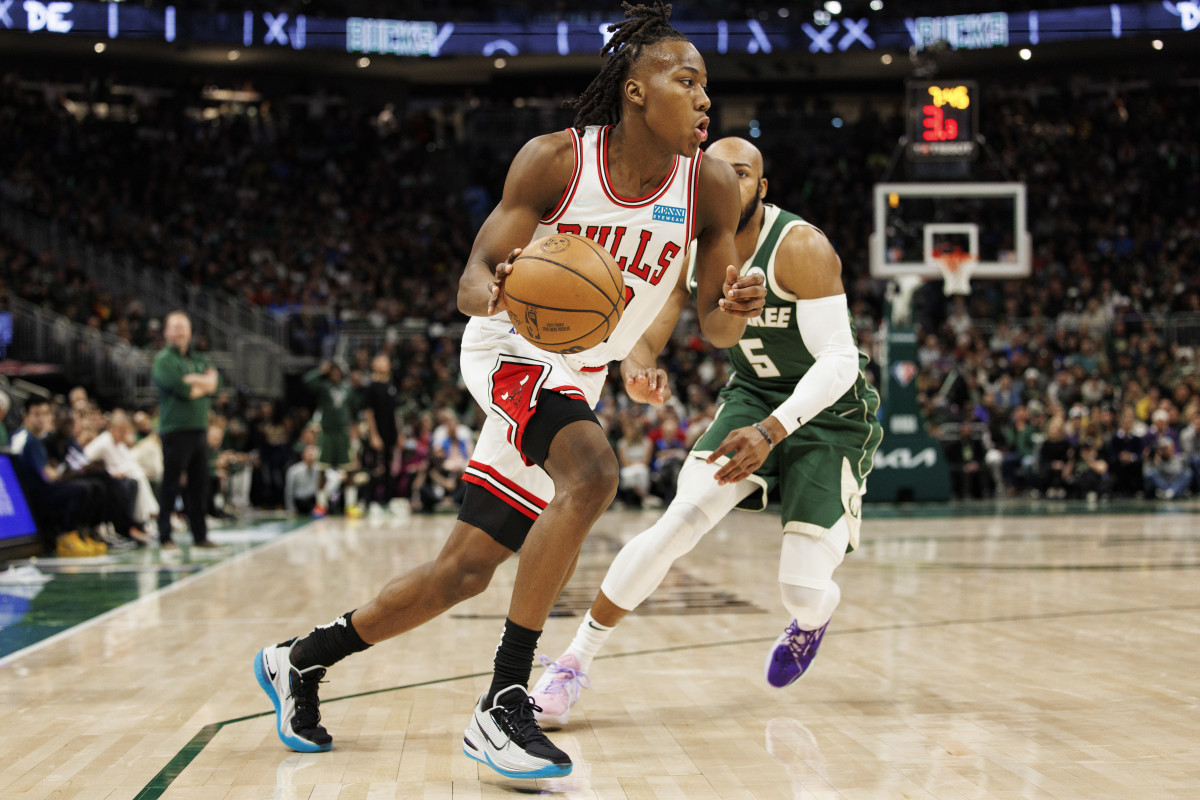
It's Time To Embrace The Quality Of Young Players
In today's NBA media world, we're bombarded with former players talking loudly about the higher level of quality of the game when they played. This leads to headlines, which often comes at the expense of today's young players.
Whatever the subject - increased rookie wages, minutes and opportunities received, talent levels - the theme from most former players is clear: The game was better when we played, and probably because of us.
As a new crop of NBA rookies take the floor later this month, it's time to send a message in the opposite direction.
Firstly, if you got drafted in the 90's, you have no idea of how much added attention today's players get, involuntarily so. These players have thousands of camera phones pointed at them at all times, with hundreds of couch analysts uploading videos to YouTube tearing them down off a 12-second clip.
You did not grow up under a similar microscope. Not even close. You could practice - freely - without having a 14-year-old content producer tell three million people about your poor footwork.
Recognize that today's players are feeling an added level of pressure to be perfect at all times. Not just at the McDonald's All-America game, but in practice, in public, and 24 hours a day.
Furthermore, you penalize young players for growing up in the social media era, as if they're the founders of Facebook, Twitter, and Instagram. Platforms, by the way, you yourselves have gladly entered to build your own following and audience.
Secondarily, let's not talk about how the quality of the game has lessened. The game has never been better, especially from an individual skill perspective. Players aren't limited to two or three strengths anymore. Now, that's their baseline.
A 6-foot-7 wing can come into the NBA as a quality defender and shot-maker, but if he can't pass the ball all that well yet, odds are good he's slipping.
The demand for excellence is at an all-time high, and it is because a high quantity of players are able to meet those demands.
Luka Dončić and Trae Young, in just their second season, respectively flirted with a triple-double, and a 30/10 average. Yet, the discourse around both at the time was "That's great, but they need to defend better".
Let's not even begin to pretend that the late 90's players would have received similar points of criticism if you had produced to similar effect.
Still don't buy what I'm selling? Let's talk about centers then.
To get reasonably paid in today's game as a center, you need to be virtually flawless, or so otherworldly dominant in two-to-three areas that you become head and shoulders above the competition.
Andre Drummond, arguably the best rebounding center in the modern era, is earning near a minimum contract, and has been for years now. He just turned 30.
Drummond is a backup, despite a raw stat line that would have made him a perennial All-Star in the late 90's and early 2000's.
Why? Because he struggles to guard in space, and can't shoot. That's it. Those two areas of concern have turned his career into that of a bench player.
While we're at it, let's check in on Hassan Whiteside, who isn't even in the league anymore. A 7-footer with a great frame, who could still average 15 points, 12 rebounds, and three blocks in today's game if given the minutes, can't even get himself a roster spot because he doesn't have defensive discipline, and chases opportunities outside the flow of the game plan.
You know when that type of player was embraced? In the last era of basketball. Don't tell me Whiteside wouldn't have played over Michael Olowokandi or Kendrick Perkins.
In today's league, all Wendell Carter Jr could fetch was a little over $12 million per year on an extension, despite his obvious abilities to defend at a high level, rebound, pass, and even shoot. But because he does so on a small scale, and you can't run the offense through him, that's his compensation level.
He would have earned the same money 20 years ago, when $12 million were close to max money.
Finally, rookies are coming in more ready than ever before. Historically, rookies have been abysmal defenders. Herb Jones, Ayo Dosunmu, Dyson Daniels, Evan Mobley, and Jeremy Sochan represents just a handful of players from the past two seasons who hit the ground defending at a high level. The narrative of rookies being poor defenders is hanging on by a thread, and in half a decade it's probably close to a non-issue.
Offensively, the story is similar. Rookies come in far more diverse in their game. Shooting isn't just a nice addition anymore, it's an outright necessity. So is passing, and so is the element of shot-creation.
Young players today - even long-term projects - come in more ready, with more fleshed out games than ever before.
But please, tell me more about how, like, Milt Palacio would destroy in this era.
To end my rant on a positive note, I will say it's not all old heads. Sixers legend Allen Iverson is unquestionably one of the most realistic retired players we have around. Without an axe to grind, Iverson is embracing the new era of basketball players, routinely talking them up, and displays an earnest appreciation of how good these players today are.
So let's celebrate Iverson for seeing the evolution of talent as it is: Continuously improving.
Everything else is nothing but noise.
Unless noted otherwise, all stats via NBA.com, PBPStats, Cleaning the Glass or Basketball-Reference. All salary information via Spotrac. All odds courtesy of FanDuel Sportsbook.
Want to join the discussion? Like Draft Digest on Facebook and follow us on Twitter to stay up to date on all the latest NBA Draft news. You can also meet the team behind the coverage.